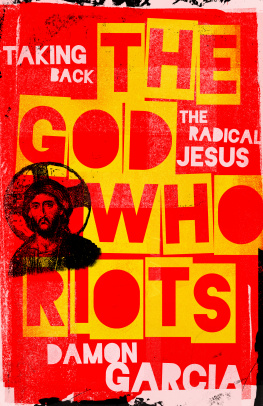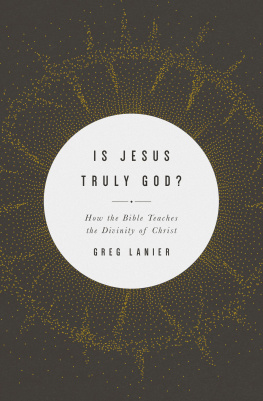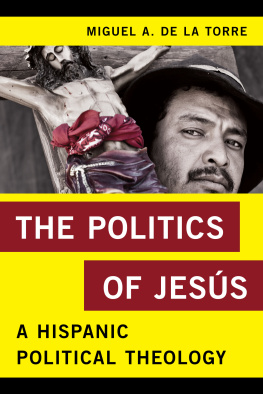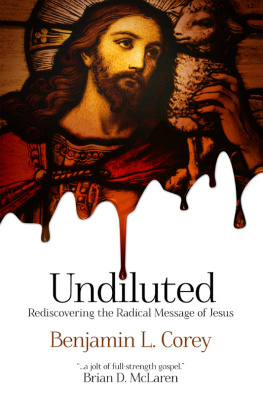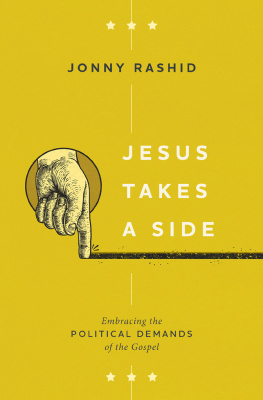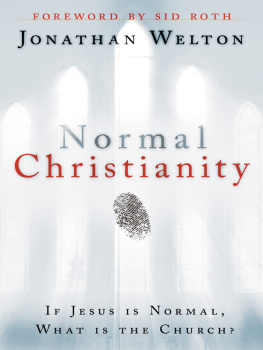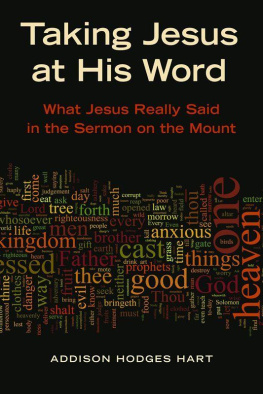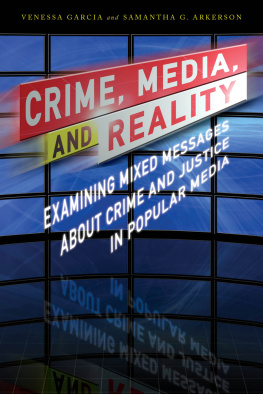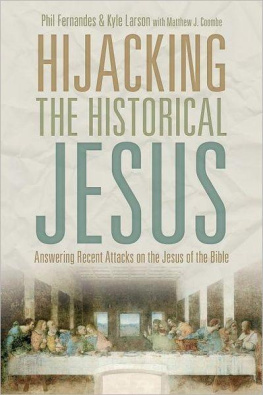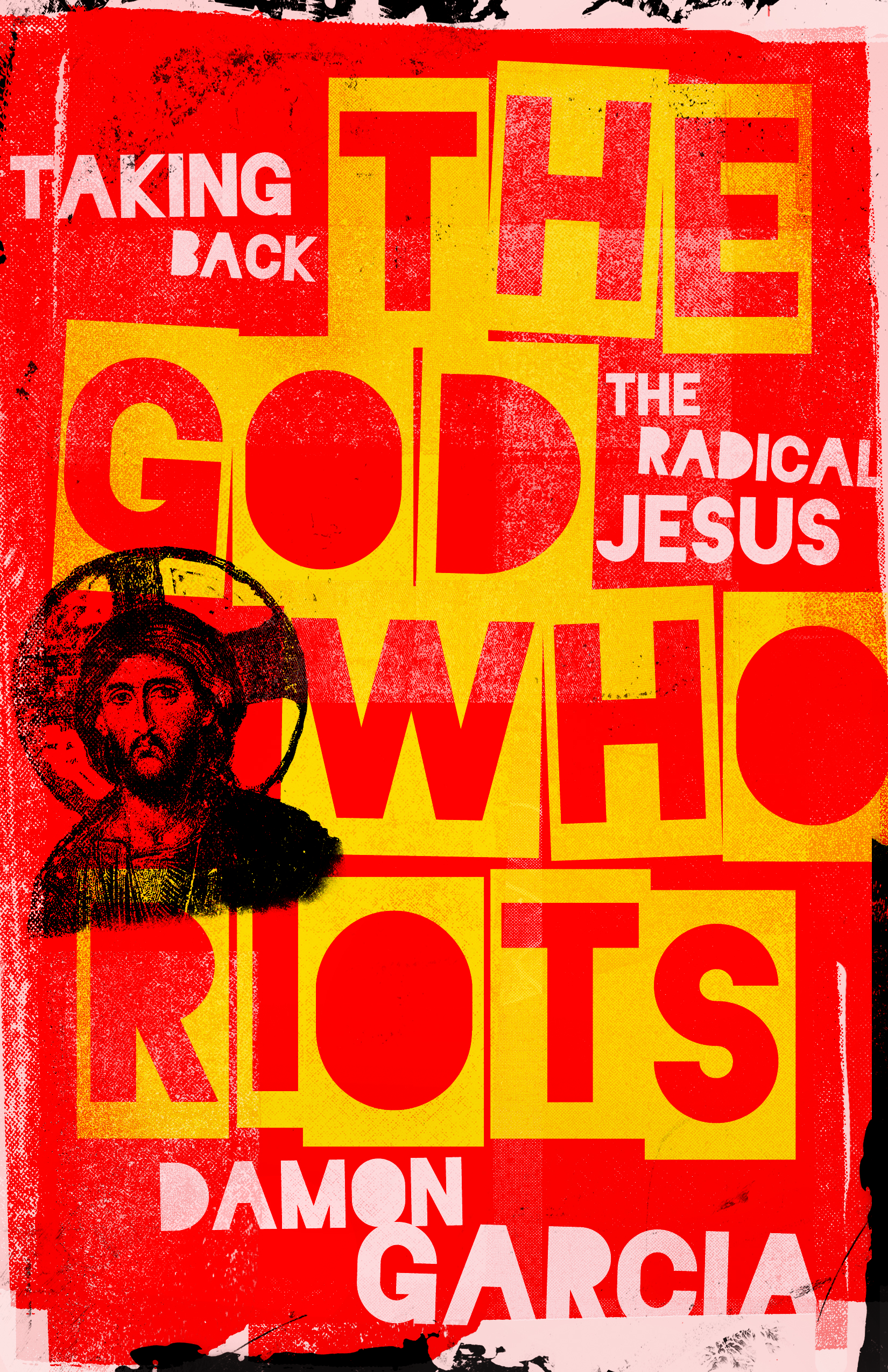
Praise for The God Who Riots: Taking Back the Radical Jesus
Damon Garcia is a narrative theologian who has spent the past few years listening to the people protesting for liberation in the United States. His insights into scripture are profound and desperately needed. In a time of enormous social upheaval, we need voices like Garcia who are prepared to embrace a world where the formerly poor and powerless lead the way to a more just world. This is a must-read for any pastor or minister who hopes to hear the message of the unheard in our society.
D. L. Mayfield, author of The Myth of the American Dream and Unruly Saint: Dorothy Days Radical Vision and Its Challenge for Our Times
The God of Christians has been many different things to many people. Often used to justify injustice and abuse, this God has left a sour taste in the mouths of the most marginalized amongst us. But there is also The God Who Riots , the God who Damon speaks in this book, a God who invites us to disrupt systems and create heaven on earth.
Jo Luehmann, host of The Living Room with Jo Luehmann and author of the Decolonizing Traditional Christianity devotional
Following Jesus is costly, and our work today is to count the cost of what it really means to follow a Brown Palestinian Jew. Living in Babylon and resisting the acceleration of the empire religion of white ChristoFascism, we must seek to get our hands dirty with the everyday and riot alongside God who cares first for the underside of history.
Robyn Henderson-Espinoza, PhD, author of Body Becoming and Activist Theology
In an age of capitalism crises and encroaching climate catastrophe, the work of a genuinely liberatory theology has never been more urgent. Damon Garcias work provides a much-needed vision of the real good news that lies at the heart of the gospel.
Jon Greenaway, writer and academic, @thelitcritguy
Damon equips us with the kind of theological paradigm needed to sustain an authentic faith in these times. His words are relevant and accessible to the privileged, the marginalized, and everyone in between. His offering is truly a welcome addition to the canon of liberation theology.
Rev. Aurelia Dvila Pratt, author of A Brown Girls Epiphany
Damon Garcia shares the real radical message of Jesusa message where love and liberation are as bright as a burning prison. Wherever you are on your faith journeywhether youre new to Christianity, deconstructing, or a lifelong Christianthis book is for those who want to follow the true radical Jesus.
Mason Mennenga, YouTuber and podcast host of A Peoples Theology
With the skill and enthusiasm of your favorite teacher from high school, Garcia takes weighty and serious topics and makes them accessible, learnable, and immediate. If youve wanted to learn about the liberation, decolonization, and abolitionist streams of Christian faith but didnt know where to start, let The God Who Riots invite you in and accompany you toward a radical faith.
Kevin Nye, author of Grace Can Lead Us Home: A Christian Call to End Homelessness
Often, Christians imagine Jesus as an apolitical figure. But drawing from both Christian scripture and tradition, Garcia introduces us to Christ from a different angleJesus isnt leading us toward otherworldly salvation, but instead struggles with us for our liberation from all manner of oppression.
Matt Bernico, The Magnificast
THE GOD WHO RIOTS
THE GOD WHO RIOTS
Taking Back the Radical Jesus
Damon Garcia
Broadleaf Books
Minneapolis
THE GOD WHO RIOTS
Taking Back the Radical Jesus
Copyright 2022 Damon Garcia. Printed by Broadleaf Books, an imprint of 1517 Media. All rights reserved. Except for brief quotations in critical articles or reviews, no part of this book may be reproduced in any manner without prior written permission from the publisher. Email copyright@1517.media or write to Permissions, Broadleaf Books, PO Box 1209, Minneapolis, MN 55440-1209.
Scripture quotations marked NRSV are taken from the New Revised Standard Version Bible, copyright 1989 National Council of the Churches of Christ in the United States of America. Used by permission. All rights reserved worldwide.
Scripture quotations without a translation indicated are the authors own translation.
Cover image: serts/iStock
Cover design: Faceout Studios
Print ISBN: 978-1-5064-8037-4
eBook ISBN: 978-1-5064-8038-1
To the Hallway (20122014)
Our conversations about faith and life were the beginning of the joyful and difficult journey that led me to this book.
Contents
Ive always suspected that Jesus was way more radical than the Christians I grew up around could comprehend.
A few years ago, I met with the associate pastors at my church and nervously confessed to them that I didnt feel comfortable inviting other young adults to service on Sundays. I was the youth and young adults minister, so it was literally my job to bring young people into that church, but it became a burden.
The year was 2017. My peers were talking about Trumps travel ban on Muslim countries, immigration, police brutality, white supremacy, and trans rights. Throughout the year there were also Black Lives Matter protests, womens marches, and teacher strikes. And yet, every Sunday morning we ignored all that.
The associate pastors listened to me as I explained this, and responded, I dont think theres as many people thinking about all that stuff as you think there are.
I left that church about a month later. But leaving that church didnt feel like I was leaving Jesus. It felt like I was following Jesus into something bigger.
I had come to realize that it was wrong to remain neutral on so many points of injustice. We claimed to be a community that followed Jesus, but I dont know what kind of Jesus this was. The Jesus of the Bible empowered people to confront injustice, not avoid it.
My favorite Jesus story is a scene a few days before Jesus is crucified where he enters the temples outer courts and shuts the place down. Jesus flips over the tables of those selling sacrificial animals and pours out their coins on the ground. With a whip he drives out the people and animals and wont allow anyone to carry anything through the temple. He then uses the place to teach and accuses the priests of turning a house of prayer into a den of robbers.
A den of robbers is not where people are robbed. A den of robbers is where robbers hide, expecting to be safe. Jesus uses this temple demonstration to accuse the religious authorities of hiding behind their religion to avoid confronting the injustice going on outside of the temple. Today, we all know Christians who hide behind their religion to avoid confronting injustice, so this demonstration is more relevant than ever.
Again and again, the God of the Bible chooses the side of the oppressed. Jesus embodies this decisiveness. Jesus said the spirit of the Lord anointed him to let the oppressed go free. This is the purpose of Jesuss ministry. The language of choosing sides is uncomfortable in our highly divisive times. Often we are trying to escape us vs. them stories. In our attempt to combat our divisiveness, we often prioritize harmony over justice. However, this only prolongs the injustice that is at the root of our divisions.
Religious organizations priority for harmony over justice has led to various critiques of religion over the centuries. Its why Karl Marx called religion the opium of the masses, imagining flowers over our chains. Its why we may love spirituality but get really uncomfortable around people who seem to over-spiritualize things. Its why we roll our eyes at people who claim that the solution to suffering is simply a change of perspective, while ignoring the oppression that continues no matter how we perceive it.
Next page
